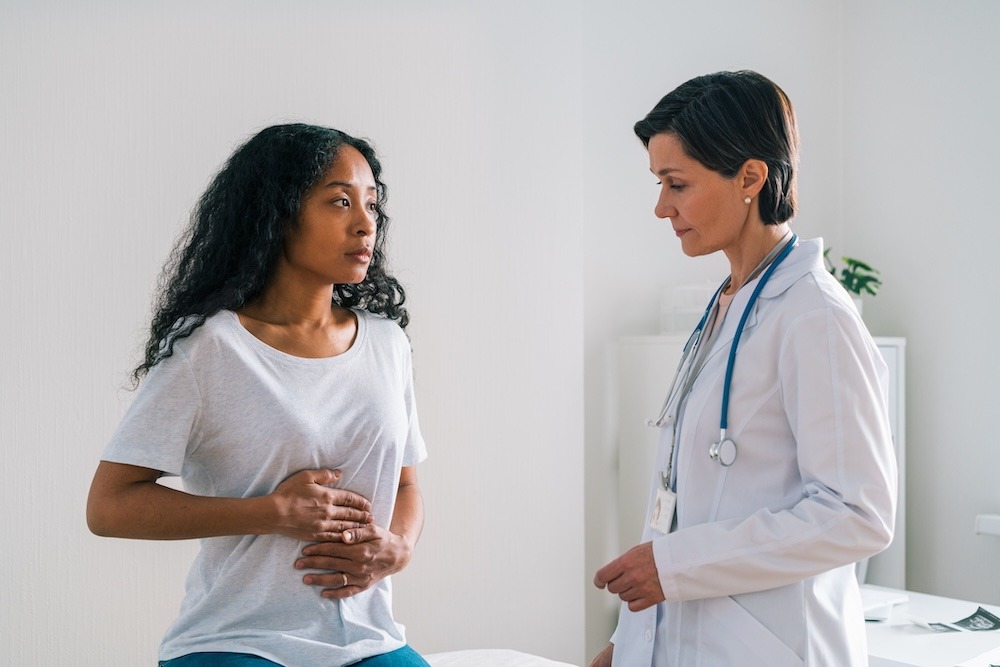
Gynecologic cancer is a general term for cancers that affect the female reproductive system, including cervical, ovarian, uterine, as well as vaginal and vulvar cancer, which are less common. As a woman, understanding your body and recognizing the warning signs associated with these cancers can save your life! Let’s look at symptoms that could be a sign of cancer in the female reproductive system.
Pay Attention to These Common Gynecologic Cancer Symptoms
The symptoms of gynecologic cancers are usually subtle and easily confused with those of other conditions related to the female reproductive system. If you notice any signs or symptoms of gynecologic cancers, especially if it’s something that recently started, it's important to discuss them with your doctor. There is no symptom too minor to ignore.
1. Abnormal Vaginal Bleeding or Discharge
Abnormal vaginal bleeding or discharge is a symptom associated with most types of gynecologic cancers. It is particularly common in endometrial cancer, which is the most common type of uterine cancer. Over 90% of women diagnosed with endometrial cancer reported abnormal bleeding before their diagnosis. This can include:
- bleeding after menopause
- bleeding between menstrual cycles
- heavy bleeding
- blood-tinged discharge
- bleeding during sex
You are likely familiar with what is normal for your body. If you notice anything unusual, it's important to see your gynecologist or primary care physician for an examination. Remember, some of these can be related to shifts in hormones as you approach menopause, but it’s best to get it checked.
2. Frequent or Urgent Urination
Urinating more frequently or feeling an urgent need to urinate could be signs of ovarian or vaginal cancer. This could be caused by a tumor putting pressure on your bladder nerves. Note any changes in bathroom habits, especially if there's no apparent reason, such as increased fluid intake or pregnancy. Discussing these changes with your doctor is a proactive approach to your gynecologic health.
3. Pain While Having Sex
Pain during sex may be caused by factors other than cancer, such as vaginal dryness, which often affects post-menopausal women. However, ovarian cancer and advanced cervical cancer can also cause this symptom. While the pain you're experiencing may not be due to cancer, it's best to seek a diagnosis from your gynecologist. If it's not cancer, your doctor may be able to provide relief.
4. Changes in Appetite and Digestion
Loss of appetite or feeling full without eating much are symptoms that could indicate a gynecologic cancer. Cancer in the pelvic area can put pressure on your stomach, causing you to feel full quickly or lose your appetite entirely.
Digestive issues, while not uncommon as women age, are also associated with gynecologic cancer, particularly ovarian cancer. Therefore, you shouldn't ignore these symptoms.
Digestive symptoms of gynecologic cancers can include frequent bloating, nausea, indigestion, diarrhea, and constipation with no other known cause. Some of these symptoms could be part of your regular monthly cycle. Discuss your eating and drinking habits with your doctor, including your daily water intake, to try to pinpoint any other issues that could be the cause.
5. Abdominal Pain or Discomfort
Both ovarian and endometrial cancer can cause pain or discomfort in the pelvis or abdominal area. Other digestive issues such as frequent gas, indigestion, unexplained bloating, pressure, or cramps, may also accompany these symptoms, but that is not always the case. It can be easy to dismiss these symptoms since other non-cancerous issues can cause them, but it’s best to see your doctor, especially if you feel pain in the abdomen.
6. Suddenly Losing Weight Without Trying
If you haven't made any lifestyle changes related to diet and exercise but experience sudden weight loss, it's important to bring this to your doctor's attention. Unplanned weight loss could be a sign of cancer or an underlying medical condition that requires diagnosis and treatment.
7. Soreness or Pain in the Vulva
Vulvar cancer is a less common type of gynecologic cancer that tends to progress slowly over time. One of the most noticeable signs of vulvar cancer is a sore that does not heal or a lump in the vulva area outside of the genitals. Additionally, be aware of symptoms such as pain, burning, itching, or tenderness in the vulva.
Lowering Your Risk of Developing a Gynecologic Cancer
There's no guarantee you'll never develop gynecologic cancer. However, there are several steps you can take to help lower the risk. You can take charge of your gynecologic health in the following ways:
- Get to know your body to recognize any new or unusual symptoms.
- Avoid smoking tobacco.
- Maintain a healthy lifestyle by eating a nutritious diet and exercising regularly.
- Find out if gynecologic cancers run in your family as certain genetic mutations can increase the risk of developing these types of cancer. Talk to your doctor about any family trends and which type of cancer was found in your female relatives. Some cancers, such as ovarian, are linked to the BRCA gene mutation that is inherited from either parent.
- Attend routine gynecologic exams, including Pap tests for cervical cancer and HPV tests if recommended by your doctor. An HPV test will help determine if the human papillomavirus, a cause of cervical cancer, is present.
- Consider getting vaccinated to reduce the risk of developing cervical cancer and other cancers caused by HPV.
How Are Gynecologic Cancers Diagnosed?
If you experience unusual symptoms for more than two weeks, be sure to inform your gynecologist or your primary care physician. It’s best not to ignore it. That’s because early detection makes treatment easier and more effective. Your doctor may conduct blood and imaging tests. Based on those tests, they may also request a biopsy of anything they find that is out of the ordinary.
If the biopsy results confirm that cancer is present, a gynecologic oncologist will lead your treatment, which typically includes surgery and other therapies based on your specific situation. Depending on the type and stage of your cancer, you may receive treatments such as chemotherapy, radiation therapy, targeted therapy, and/or immunotherapy.
Gynecologic Cancer Care in the Atlanta Area
If you are newly diagnosed with gynecologic cancer and radiation is part of your treatment plan, you can receive it at a cancer center in the Atlanta area that is convenient for you. RCOG has a team of experts located in Conyers, Covington, Decatur, and Snellville. You can request an appointment with a member of our team for a consultation on what type of radiation therapy is best for you.


